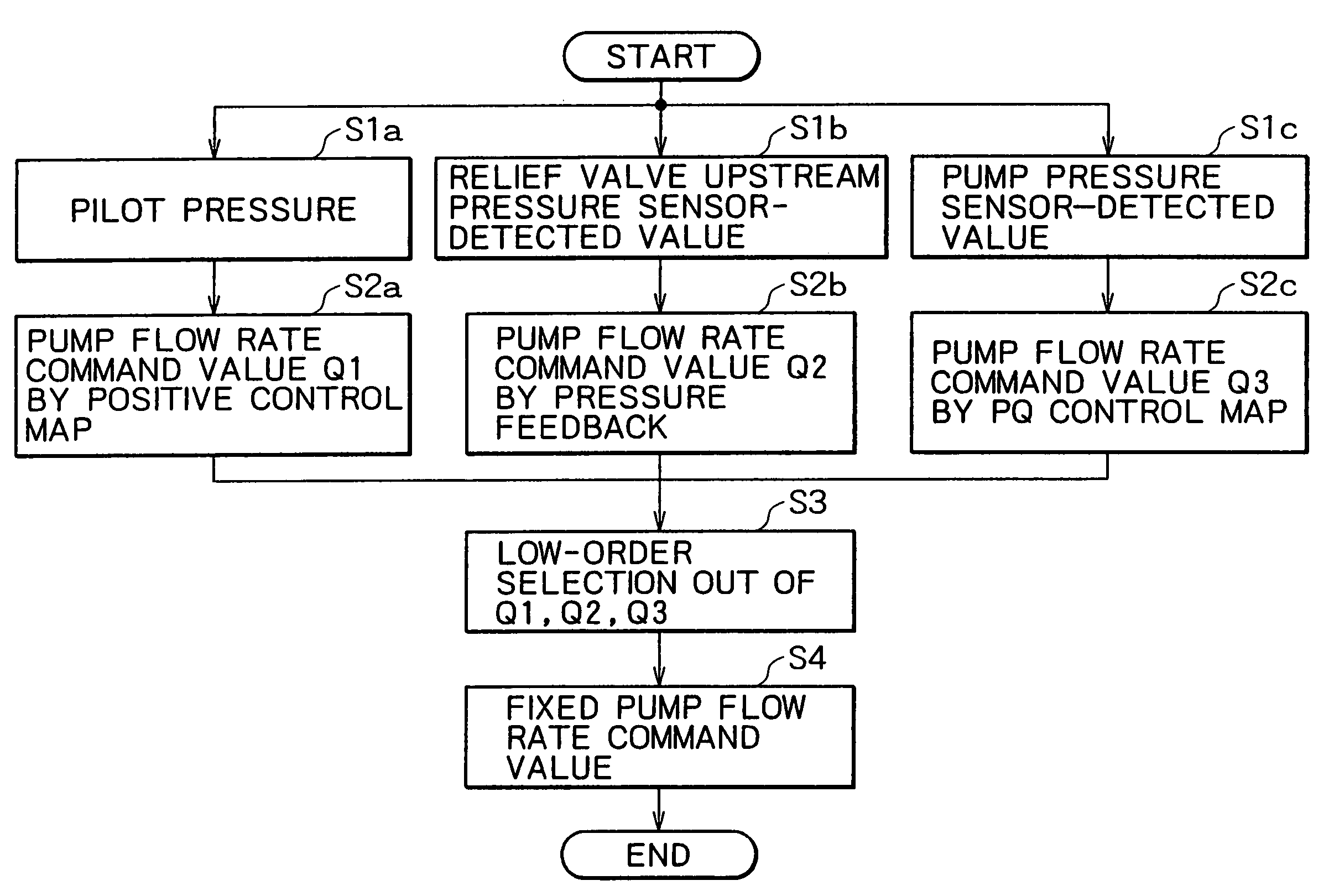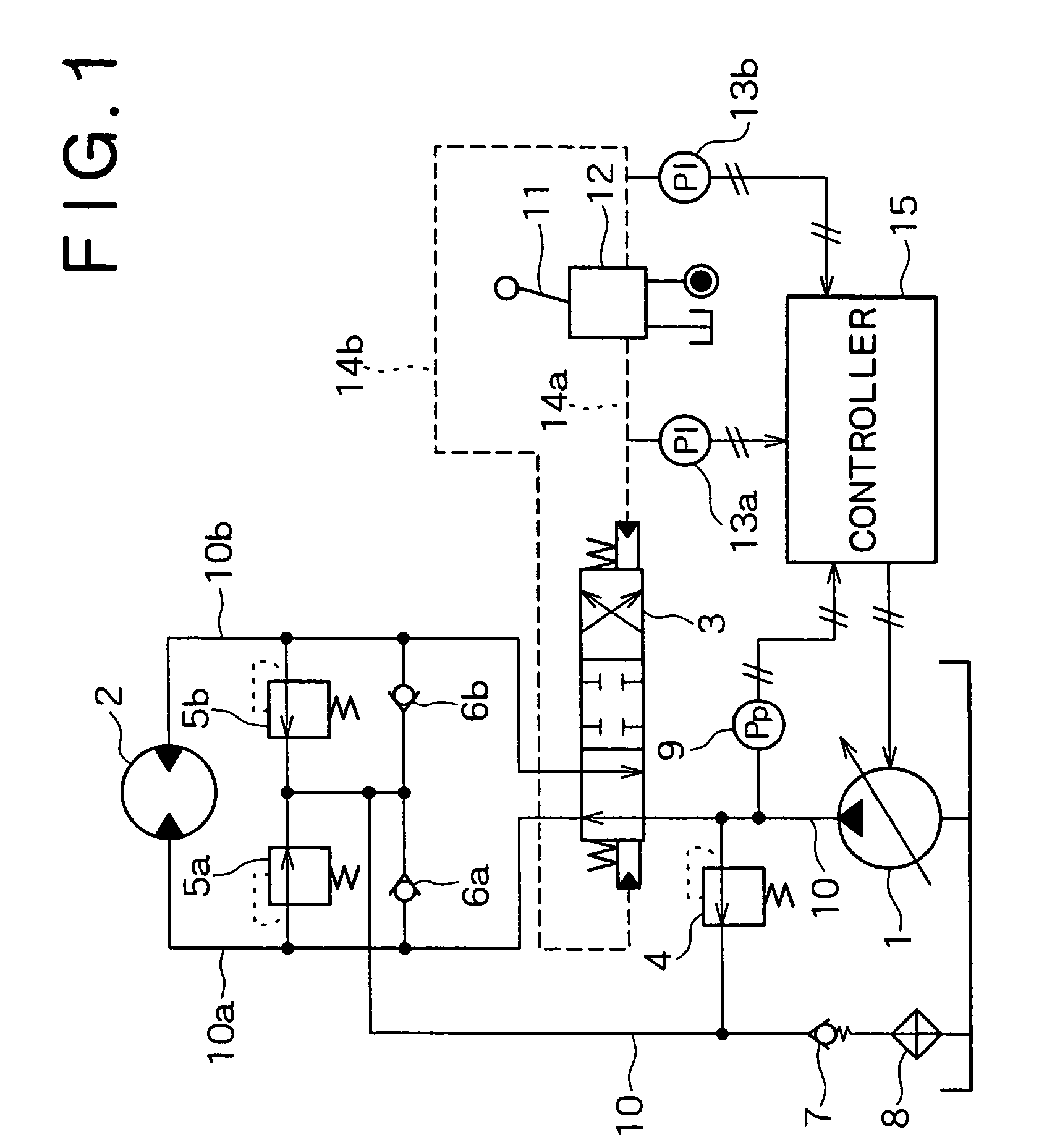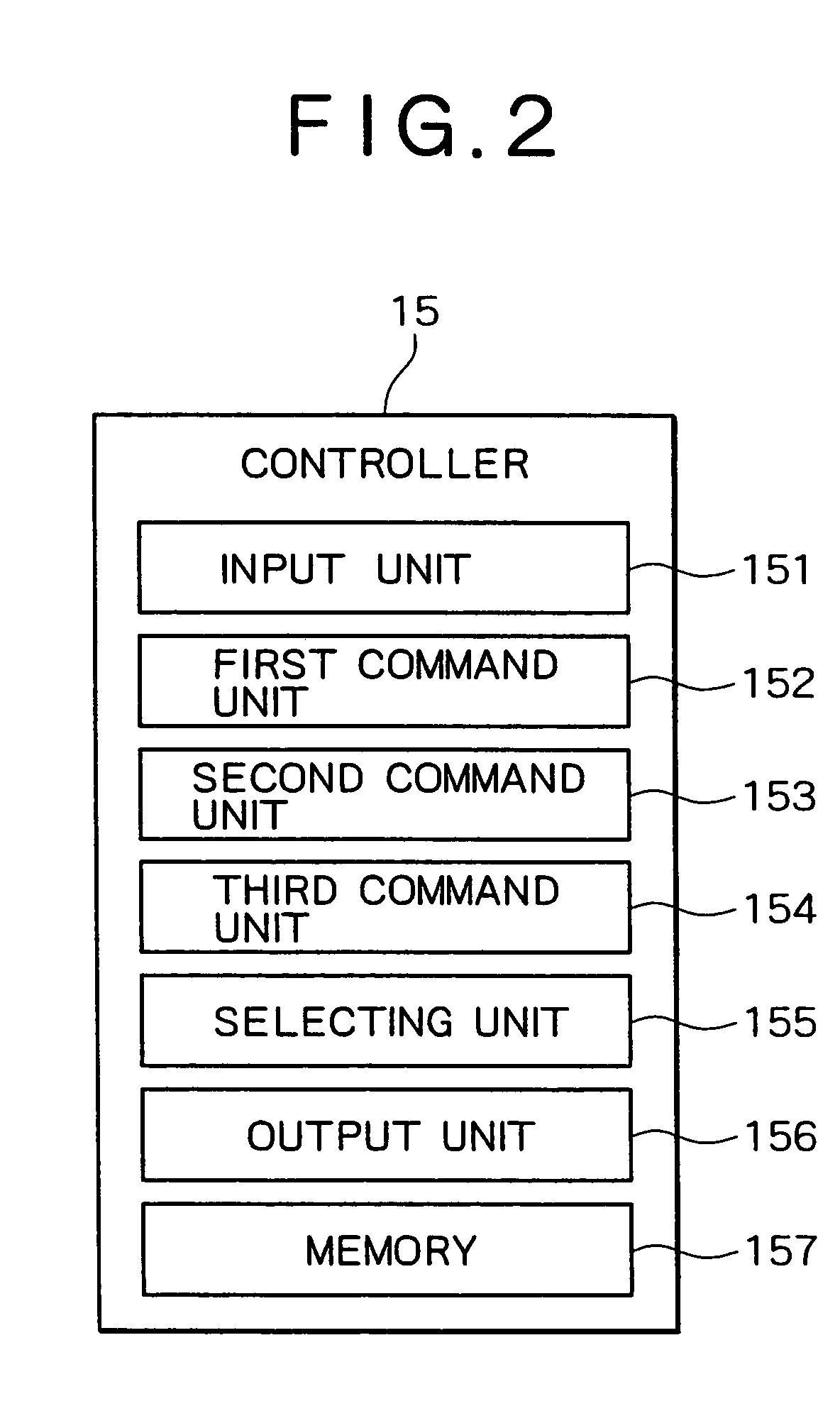Hydraulic control system for working machine
a control system and working machine technology, applied in the direction of fluid couplings, servomotors, couplings, etc., can solve the problems of inability to control the pump discharge quantity, the speed of the swing motor does not increase rapidly, and the energy efficiency is deteriorated, so as to reduce the flow rate and improve energy efficiency, no fear of acceleration performance and driving force impairmen
- Summary
- Abstract
- Description
- Claims
- Application Information
AI Technical Summary
Benefits of technology
Problems solved by technology
Method used
Image
Examples
first embodiment
[0028]FIG. 1 illustrates a hydraulic control system for a working machine according to a first embodiment of the present invention and FIG. 2 is a block diagram of a controller.
[0029]In FIG. 1, numeral 1 denotes a variable capacity type hydraulic pump, numeral 2 denotes a hydraulic motor as an example of a hydraulic actuator, numeral 3 denotes a control valve for controlling the supply and discharge of working oil to and from the hydraulic motor 2, numeral 4 denotes a main relief valve as an example of a relief mechanism, numerals 5a and 5b denote port relief valves, numerals 6a and 6b denote check valves for make-up, numeral 7 denotes a back pressure check valve, numeral 8 denotes an oil cooler, and numeral 9 denotes a pressure sensor. All of these elements are connected to a main line 10 (10a, 10b). Numeral 11 denotes an operating lever, numeral 12 denotes a remote control valve for generating a pilot pressure in pilot lines 14a and 14b in accordance with a lever operation amount,...
second embodiment
[0054]FIG. 9 illustrates a hydraulic control system for a working machine according to a second embodiment of the present invention and FIG. 10 is an explanatory diagram showing a pressure-flow rate response relation in the port relief valves. In this second embodiment, elements common to the first embodiment are identified by the same reference numerals as in the first embodiment and tautological explanations thereof will be omitted.
[0055]In the hydraulic control system of this second embodiment, as shown in FIG. 9, pilot lines 14a and 14b are branched to provide pilot lines 14c and 14d communicating with spring chambers of the port relief valves 5a and 5b. The operation of this system configuration will be described below.
[0056]FIG. 9 shows a state in which a pilot pressure is developed on the pilot line 14a by operation of the operating lever 11, and with the control valve 3 switched to the right side, the main line 10a becomes a working oil supply side and the main line 10b beco...
third embodiment
[0063]FIG. 11 is an explanatory diagram showing a control method using mode switching.
[0064]In a controller 15 according to this third embodiment, it is possible to make an ON / OFF selection in the pressure feedback control by the first command unit 152. As shown in FIG. 11, the controller 15 includes an energy saving mode processing unit 302 for the execution of processing in an energy saving mode (first mode), a high power mode processing unit 303 for the execution of processing in a high power mode (second mode), and a mode select switch 301 for switching a mode to the other mode. Other elements are the same as in the first and second embodiments.
[0065]The energy saving mode processing unit 302, upon receipt of a switching signal from the mode select switch 301, provides a command signal for ON selection of the pressure feedback control to the first command unit 152.
[0066]The high power mode processing unit 303, upon receipt of a switching signal from the mode select switch 301, p...
PUM
 Login to View More
Login to View More Abstract
Description
Claims
Application Information
 Login to View More
Login to View More - R&D
- Intellectual Property
- Life Sciences
- Materials
- Tech Scout
- Unparalleled Data Quality
- Higher Quality Content
- 60% Fewer Hallucinations
Browse by: Latest US Patents, China's latest patents, Technical Efficacy Thesaurus, Application Domain, Technology Topic, Popular Technical Reports.
© 2025 PatSnap. All rights reserved.Legal|Privacy policy|Modern Slavery Act Transparency Statement|Sitemap|About US| Contact US: help@patsnap.com



